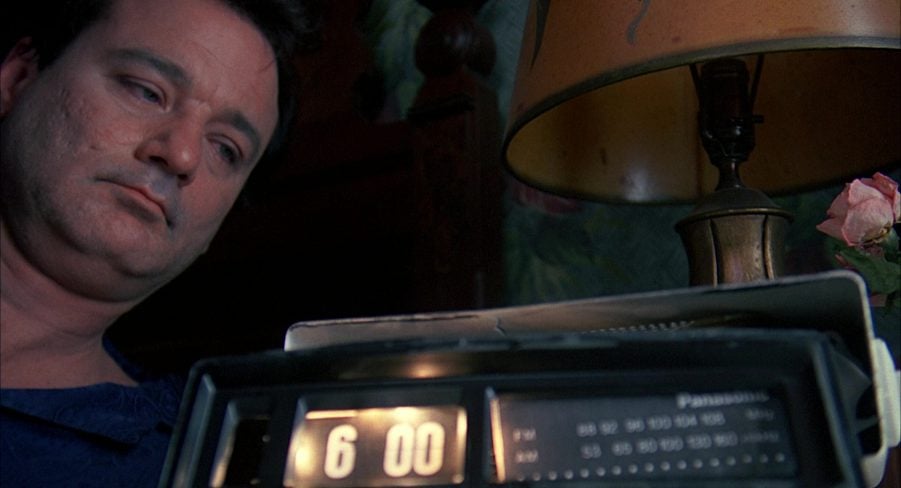Funny
General rules:
- Be kind.
- All posts must make an attempt to be funny.
- Obey the general sh.itjust.works instance rules.
- No politics or political figures. There are plenty of other politics communities to choose from.
- Don't post anything grotesque or potentially illegal. Examples include pornography, gore, animal cruelty, inappropriate jokes involving kids, etc.
Exceptions may be made at the discretion of the mods.
A good time for a PSA from your friendly neighborhood electrician: make sure you have working GFCI protection in all bathrooms and kitchens to prevent unwanted tickle time
And also wanted tickle time
Btw thanks European regulation for not letting me die, its really fucking great
Shouldn't that be standard everywhere? My flats here in Germany all had one central switch for that wired before the actual circuit breakers so that any outlet should be protected.
Is there a reason to only put that on select outlets?
Breakers work when you draw too much current through the circuit and a metal strip heats up, expands and flips the circuit off. It's meant to stop you from plugging in too many devices and heating up the wire inside of your wall. It takes a bit of time activate.
GFCI stands for Ground Fault Circuit Interrupt. If any current is detected going across one of the current carrying wires and the grounding wire, it immediately turns the circuit off.
PSA, please, please don't rip off the grounding prong on your outdoor water fountain pump because you can't find a grounded extension cord.
It depends honestly. Here in the states, we GFCI kitchens, bathrooms, laundries, garages, crawl spaces underneath houses, and exteriors, basically anywhere it could be reasonably expected to come in contact with water or an unexpected grounding/earth source. From there, you can either do a GFCI breaker or receptacle. Both will protect everything downstream from the device, but the choice comes down to convenience of operation. I'll generally do GFCI breakers for dishwasher, disposals, refrigerators, etc, just so that if the GFCI trips you can reset it in the panel so you don't have to pull the equipment out to get to it, but I'll do kitchen and bathroom counter convenience plugs as a GFCI receptacle (and daisychain all downstream kitchen receptacles from the GFCI receptacle) to be able to reset it right there at the point of use.
You could in theory GFCI protect an entire house/flat, but it likely comes down to cost saving and avoiding nuisance trips. Motors as they age tend to leak current and trip GFCIs, and any number of delicate electronics can be finicky, so that's typically why we only use them in wet locations.
American homes have a master circuit breaker (or fuse) which protects the entire house, and then individual circuit breakers for several circuits throughout the house, the exact configuration depends on the home, the era it was wired, etc. These only look at current. An American household 15 amp circuit breaker will happily electrocute a human if he only draws 10 amps. It doesn't care if the electricity is completing the circuit through ground, it's only job is to keep the wires in your walls from overheating and starting a fire.
Ground fault circuit interruptors (GFCIs) detect when current is completing the circuit through ground instead of neutral, which is what happens when you drop the proverbial toaster in the bathtub. Fresh water is an insulator but salty, soapy or acidic water is a conductor, and will conduct electricity into the pipes of the house, which are often used as the electrical system's ground. GFCIs are often installed in places where one might encounter the outdoors or plumbing, aka when there's a significant risk of a short to ground. A typical American duplex outlet costs a buck or two, a GFCI outlet costs upwards of $10, it's expensive to install a whole house with GFCIs.
Or, you know, just keep the toaster away from the bathtub/sinks?
Hair dryers have killed people too, which are much more likely to be found in a bathroom. It's why they all have GFCIs in their plugs. I've also heard tell of a girl who was electrocuted in the bath by her phone charger. The USB cord won't do it; the 5V USB puts out can't hurt you. But if the charging brick and 110V wall power cord you've plugged it into falls into the water with you you're gonna do the 15 amp dance.
It really is to save those that aren't smarter than your average Bear from themselves. Logic would dictate that, yes, keep electronics or electrical appliances away from water, but too many people don't connect the dots. Also too, accidents happen to the best of us.
Make sure it is working but then ideally try to behave as if it wasn't just in case.
Remove the bread, add aspirin and razor blades. If you’re going to make a spectacle, make a spectacle.
Got to add a Sylvia Plath novel and a handle of alcohol.
I did once walk into a Wal Mart and bought a power drill, some road flares and a box of condoms. These were independent purchases but I just happened to need or want to buy all three that day. My only comment to the cashier was "This is gonna be awesome!"
As a former cashier, I assure you, we don't give a shit lol
Now I need to watch that movie again...
...and again
🎶 Then put your little hand in mine
There ain't no hill or mountain we can't climb 🎶

Remove the bread, add a rope instead
Or an extension cord
A male to male one, to be exact
Didn't they change toasters so that you can't do this anymore?
I don't know if they changed toasters but they definitely changed building code at least in the US to require GFCI outlets in the bathroom that will shut off when a short is detected because of this.
Well, not specifically for toasters. It was more about hairdryers and curling irons causing accidental electrocutions than for suicide prevention.
No, they changed bathroom plugs. Now they have GCFIs. They have a built in test button, but there is one other way to tell...
Also they claim that the shorter cords on kitchen appliances are to prevent this but I say that's bullshit and they're just cheap.
It just takes a little more ingenuity.
That's only going to make me buy anoth... son of a bitch we been swindled.
Reminds me of when me and a buddy were making rum in my apartment.
An entire cart full of molasses and brown sugar.
Clerk just looked and asked "doing a lot of baking?"
Yep. Baking.
So baby hold me closer in the bathtub with a toaster
Why is a toaster the small electrical appliance of choice for that kind of thing? Good voltage/size ratio?
In ye olde times, a toaster was basically the wire out of the wall, past the bread and back into the wall. It's the most amount of exposed wire you can get
"Good thinking"
Fun fact a toaster in water probably won’t kill you, I mean it could obviously but it’s more likely that the electricity goes straight to the ground within the toaster, and slowly heat up the water, I wouldn’t try it but interesting nonetheless.
It would flip the circuit breaker.
A GFCI, yes, but regular circuit breaker won't stop it from killing you, it's primarily there to keep the house wiring from melting and burning down the house :) You just need 6 milliamps across the heart to f you over.
The cashier will keep your secret safe
It’s way less alarming if you explain that you won’t actually eat the bread.
Good Thinking

